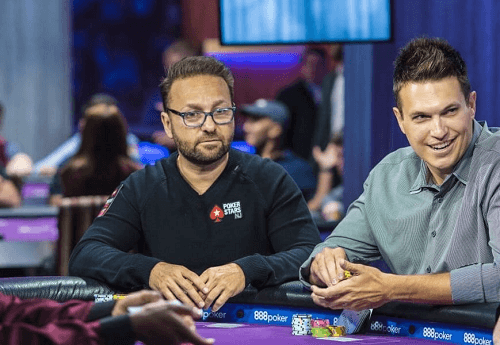How Do Poker Pros Get Good?
Poker is fascinating because the poker pros are so much better than us amateurs. There’s something remarkable about the fact that we all receive the same 52 cards. Despite this, some of us can outplay the cards so much better than others with two cards in hand.
In terms of variance, the cards are still the same; stakes and bankrolls differ. Get tips on becoming a poker pro from this guide.
How to Become a Poker Pro
1 – Study and Understand the Game
Power comes from knowledge. It takes a lot of time and effort for professionals to reach high levels of proficiency in poker. Typically, poker players read many poker books and engage in detailed hand discussions on poker forums.
Although this site contains many helpful hints and strategies, playing hands is the best way to develop your skills. You should experiment with different ways of playing aggressively and passively in all situations and find out what works for you.

2 – Get Familiar with the Rules
To play any poker, you must be familiar with all the rules. A variety of variations are available, each with its nuances depending on your style of playing. Texas Hold’em poker, the most popular, shares many similarities with Stud Poker, the more traditional form.
Positional play and blinds are all important elements of hand ranking. Whether you play online or hold the cards in your hands, terminology and etiquette can play an integral part in ensuring you feel comfortable at the tables, which means you can be relaxed and make educated decisions.
3 – Start Playing
After completing your homework and eliminating any gaps in your poker knowledge, you should now turn your attention to practice. It would be best if you got playing to achieve that goal. Getting started with online poker is as simple as registering at one or more of the top sites.
You can experience the highs and lows of being an aspiring professional poker player by playing free games, freeroll tournaments and low-level stakes games with large fields. When you become more confident at the table, you will take on better opponents under pressure.
4 – Only Play Winning Hands
Professional poker players know that throwing away the junk and refusing to play hands their opponents want them to play are crucial parts of their skills. Your stake needs to be managed with patience.
It is rarely a good idea to play anything other than a positive expected value (+EV) starting hand pre-flop to give yourself the best chance of winning right from the start. You can use the handy table below to determine if you should play or hold!
5 – Learn How and When to Bluff
The proper way to play poker is to bet when you are strong and fold when you are weak, but you don’t keep your opponents on their toes. A player’s poker arsenal should include bluffing, which involves betting on a weak hand to deceive his opponents or under betting a strong hand to entice them to play.
It is one of the most important poker skills you will develop to get a stronger opponent to fold or bet when they shouldn’t. However, be careful! Experienced poker players tend to play it straight much more than you might think when it comes to bluffs. It’s all about timing.
6. Be Realistic Like Poker Pros
Once you decide to play winning poker, you need to decide how many hands or tournaments you must play to match your previous earnings. People miss the mark here most often.
Generally, salaried employees are paid on the same date every month regardless of their productivity (within reason). Vacation or illness will almost certainly result in a paycheque. However, when you play poker professionally, there aren’t such benefits.
7. Build a big bankroll and Manage Your Money
If things don’t work out, most poker pros like to have six months’ worth of living expenses stashed away in a separate account. It would be best if you never dipped into your bankroll to pay off your bills.
If you don’t want to drop down in stakes, you should have a much larger bankroll than a recreational player would. It becomes much more difficult to achieve your monetary goals by dropping down, so be careful. You’re better off if the bankroll is low than going broke.